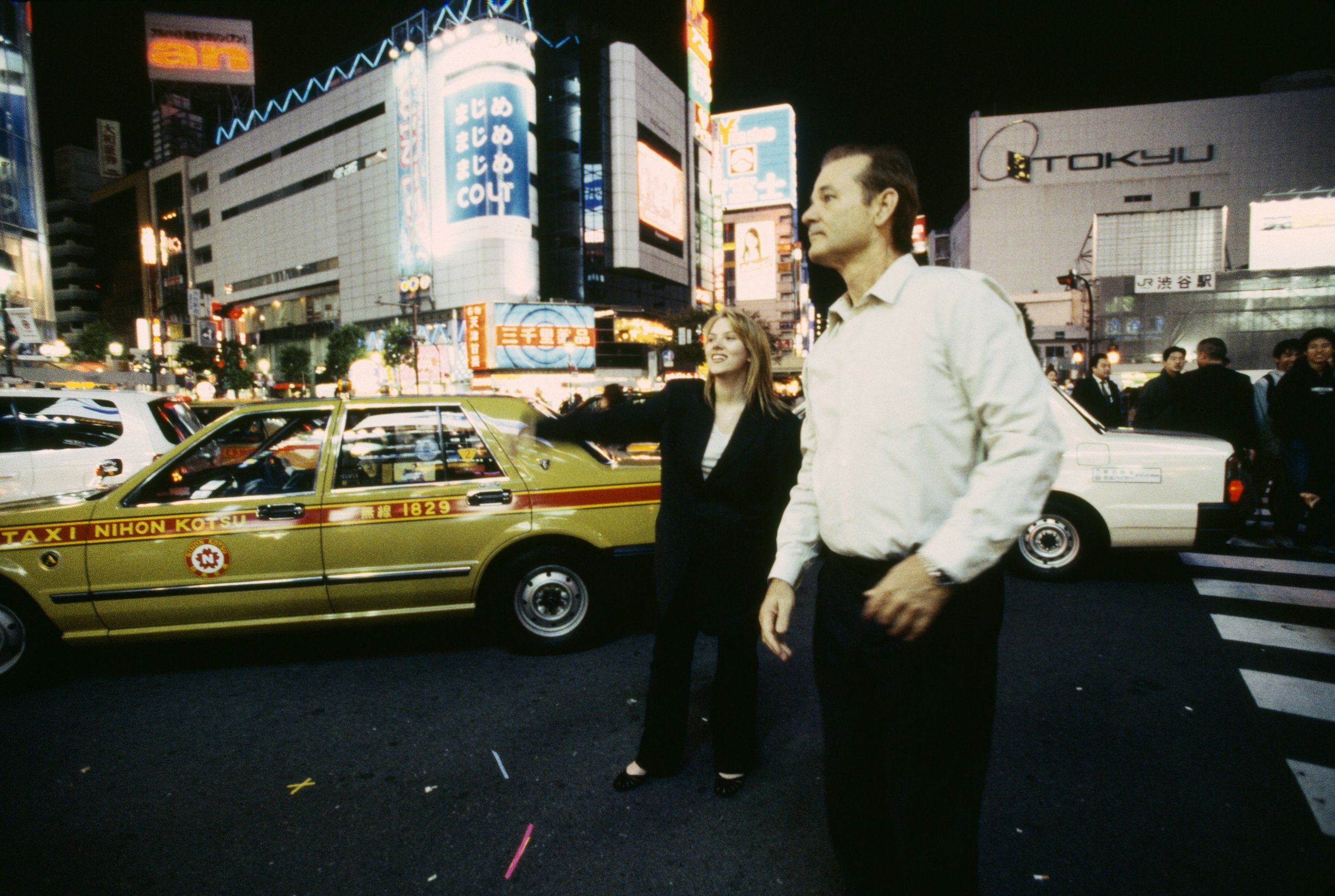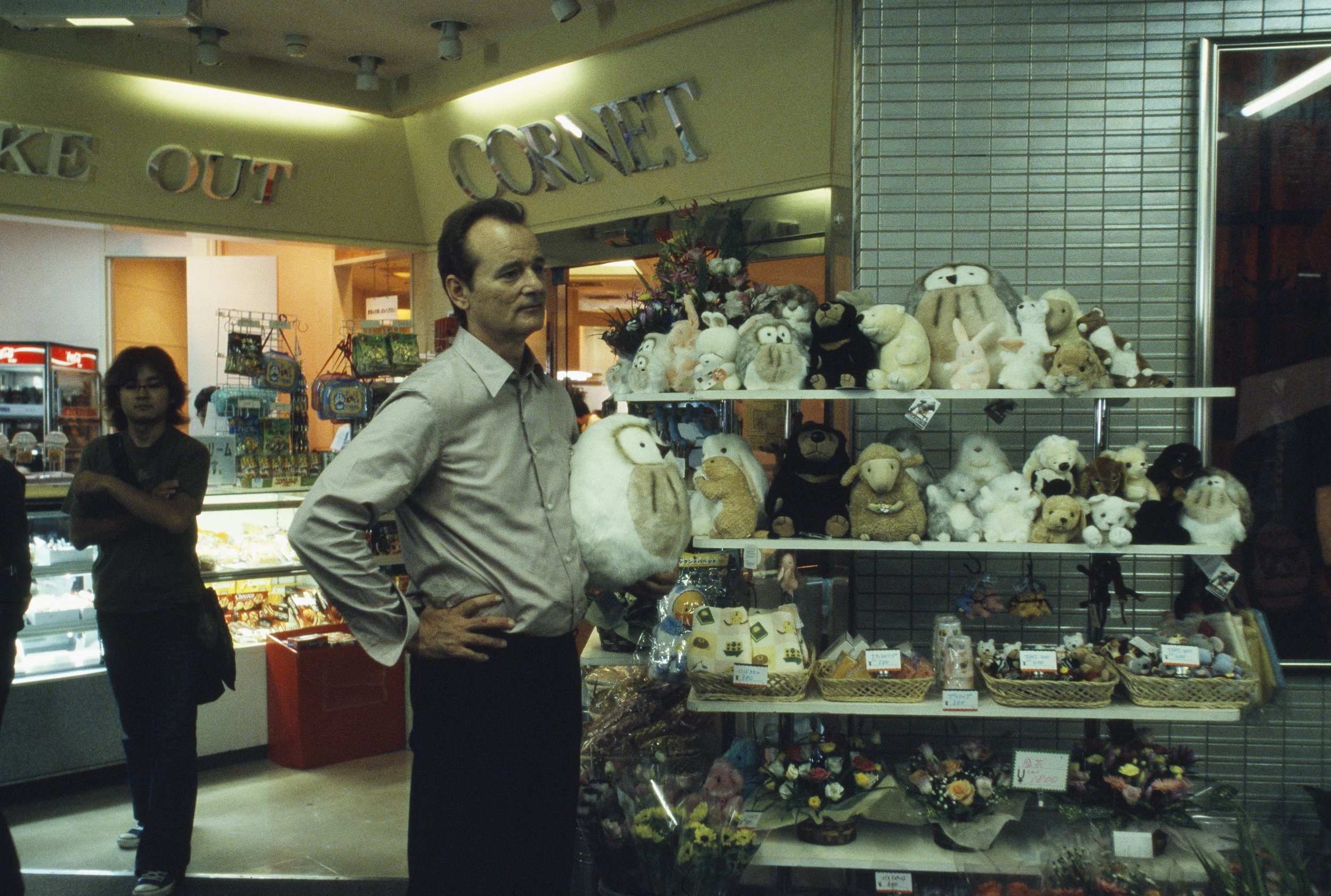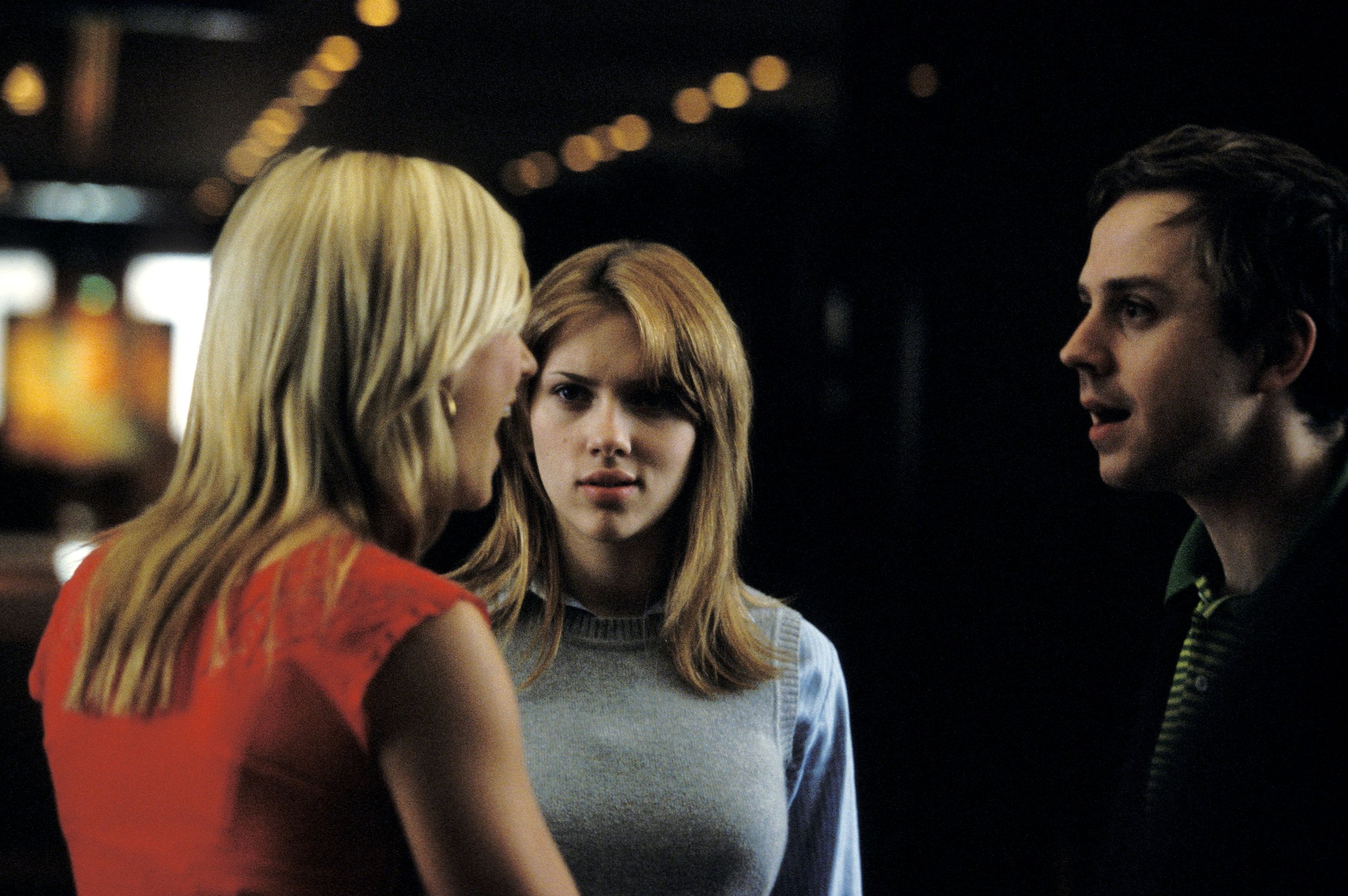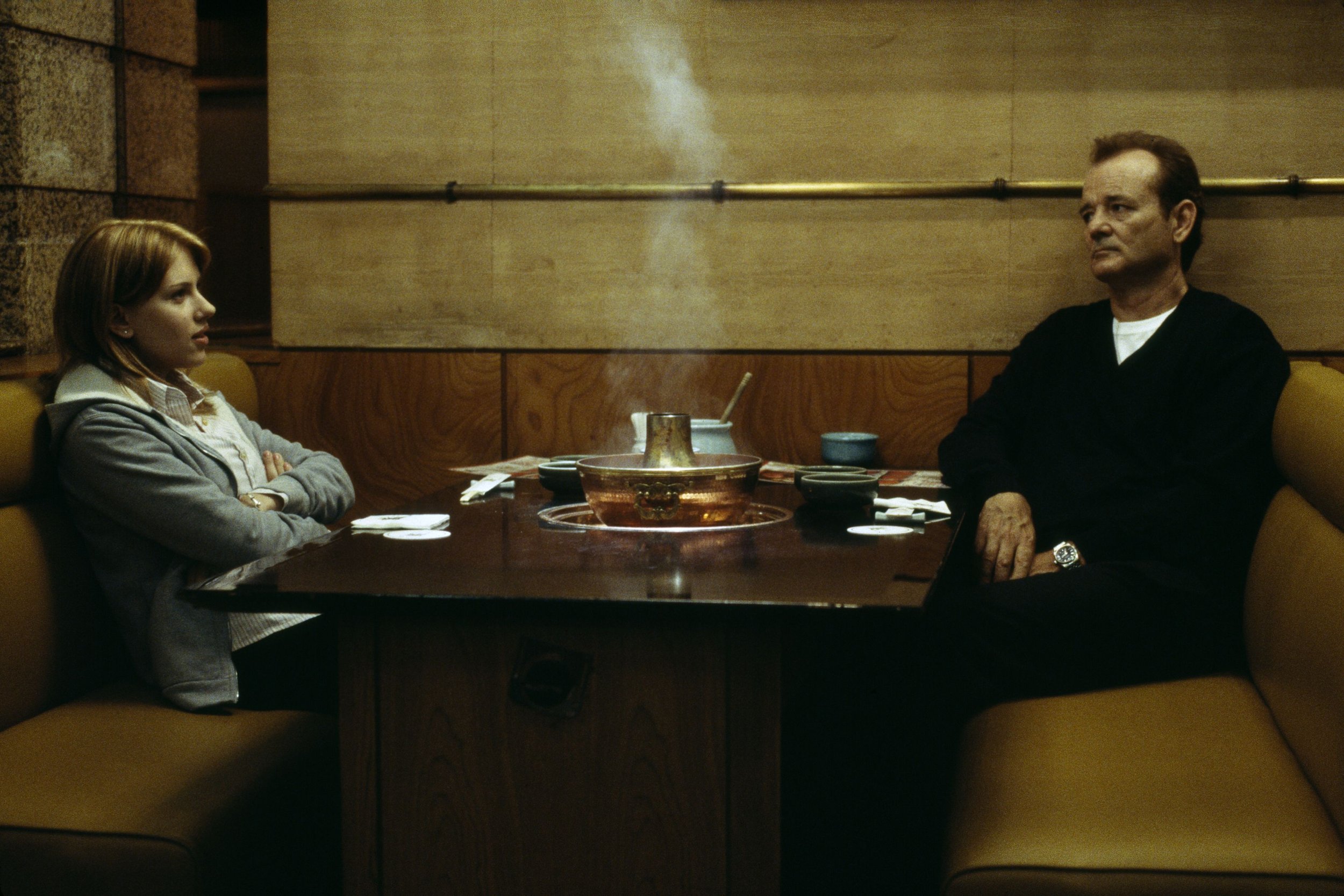Lost in Translation (2003)
Director: Sofia Coppola
Starring: Bill Murray, Scarlett Johansson, Giovanni Ribisi, Anna Faris
Primary genre: Romance
Secondary genre: Comedy
Third genre: Drama
Nominated for: Best original screenplay, picture, director, lead actor
Won: Best original screenplay
An ode to melancholic and introverted souls, Sofia Coppola’s follow up to “The Virgin Suicides” (1999) remains still her best movie and one of the finest outings of original independent cinema.
Centered around a platonic relationship between two wildly different individuals who seem to be sharing more than meets the eye, “Lost in Translation” uses the largest metropolis of our planet as a supporting cast member. The disconnection from this mixed aesthetic of technological infrastructure and traditional architecture that only Tokyo can offer is evident by two Americans alienated by a culture where their prevalent (and privileged if you will) language means nothing. This “superficial” isolation only elevates their segregation from their life choices; Bob struggles to produce any sort of sentiment, discontent by his affluential lifestyle and static marriage while Charlotte is drifting further away by a clueless husband even in the smallest of social circumstances.
Coppola shows a remarkable maturity and understanding of human connection never electing to sacrifice her (frankly gorgeous) female lead to the altar of cheap comedic or dramatic thrills or let herself become infatuated with Murray’s comedic talent. She suggests an emotional depth that even critically acclaimed movies of the early noughties lacked generating cinematic fireworks with the shortest of sentences and subtle acts of stoicism; a bed scene is shot with such rigorous honesty which Yasujiro Ozu would be proud, their body behavior and looks are enough to hint complex feelings, regrets and life contemplation. Devoid of mid-life crises to make us laugh or OTT reactions of despair and anger, “Lost in Translation” might be initially referring to a cultural incompatibility but it is also about how you (loosely) “translate” yourself in own life too whether as a young or an older adult. It is how you choose to find satisfaction (or is it gratification?) into a easy to step into care-free circle that requires no effort.
“The more you know who you are, and what you want, the less you let things upset you“
-Bob Harris
This is filmmaking at its most sincere presenting a unique story that only a collage of pictures and a symphony of sound can reveal. Deconstructing the concept of loneliness and soul wondering and dissecting carefully human relationships, Coppola’s script never attacks or condemns any of the on-screen choices and feelings we experience allowing the audience to decide even the outcome of this story.
Bill Murray gives the performance of a lifetime (and one of the best in movie history), a far cry from his deadpan chops sharing an enviable chemistry with his much, much younger Scarlett Johansson. What could have easily overshadow the story and glide into sleazy territory is an opportunity for subtle frankness. Harris is by no means portrayed as a life mentor from a moral standpoint neither is the lover whom Charlotte has been looking for (or we as the audience are rooting for). Yet, his small nuggets of middle age wisdom and capacity for child like jokes are enough to resonate with her in the most of unorthodox of environments (e.g., karaoke or a strip club). His apathy on the other hand despite his apparent fluent materialistic success is neutralized by a willing individual to explore Tokyo’s neon soaked streets through clubbing, eating yakiniku and watching movies. With tired emotionally eyes, Bob attempts to reconnect with the world around him, even if its culture wise concepts, make him unable (yet open) to understand. His calls with an equally “robotic” wife on L.A is firm evidence that the older you get, one’s passion and urges became to fade away but no judgement is being passed here wisely. Johansson complements him and gives her “heroine” an appropriately underdog flair that will resonate with plenty of men and women.
“Lost in Translation” is one of these rare occasions where every shot is perfect and serves a narrative/character purpose prompting plenty of discussion afterwards about which one was the most representative (e.g., Johansson overseeing Shinjuku from her hotel window will be imprinted at the audience’s memory). Boasting one of the most memorable duos of the last twenty years, a bittersweet tone, a hard to be found truthfulness and a beautiful finale, it will sweep you off your feet.
An ode to lonely and melancholic souls
+Bill Murray
+Excellent work by Johansson
+Tokyo is a character itself
+Esoteric glimpse into human relationships
+Honest and truthful filmmaking
+Beautiful finale
+Lacks Hollywoodisms





